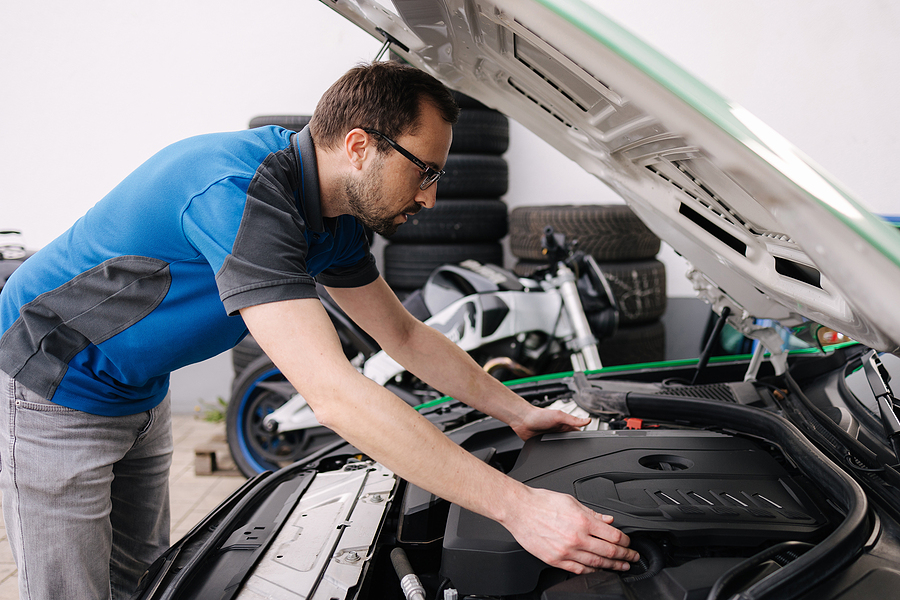Welcome to your ultimate guide to car engine replacement! If you’ve ever been caught in that predicament where your car engine won’t start, or you’re simply curious about the intricate world of car engine parts, this guide is for you. With the multitude of components involved and technical jargon to navigate, the idea of a car engine replacement can seem daunting. However, with some guidance and understanding, it’s a task that can be more manageable than you think.
Read on as we delve into this comprehensive guide, breaking down the complexities of engine replacement into simple, digestible information, including how to make a quick profit off of your broken motor.

Facts About Car Engine Replacement
At its most basic level, car engine replacement involves replacing one or more components of the vehicle’s engine. This would require taking apart and removing the old parts, before replacing them with new ones. Depending on the type of engine you have and what needs to be replaced, this process can range from relatively simple to complicated.
When Car Engine Replacement is Necessary
Replacing a car engine can be necessary for a variety of reasons, the most common being that the current engine has worn out. This could be due to age, wear and tear or damage caused by any number of factors such as water exposure, dirt buildup or even collisions. Even if only one part of the engine has failed, it is often recommended to replace the whole engine due to the complexity involved in replacing certain parts.
Other reasons for needing a car engine replacement could include wanting to increase horsepower or performance, as while this can be achieved by adding aftermarket modifications such as superchargers and turbochargers, replacing an entire engine could be more cost-effective in the long run.
Basic Steps of Car Engine Replacement
The steps involved in a car engine replacement largely depend on what type of engine you have, as well as which components need to be replaced, however there is usually some basic preparation and dismantling that needs to take place regardless. Generally speaking, the following steps are involved in car engine replacement:
► Drain the coolant and oil.
► Disconnect the wiring harnesses.
► Remove the exhaust manifolds and other components (i.e. starter or alternator).
► Pull out the old engine.
► Install the new engine.
► Reconnect all of the engine parts and components.
► Fill it with new oil, coolant, and necessary fluids.
► Test run the engine and inspect for any issues.
The Average Cost to Replace a Car Engine
The cost of car engine replacement can vary wildly depending on the parts involved and the type of engine you have. Typically, it will range from just a few hundred dollars for a basic, used engine, to several thousand dollars for new parts. It is important to consider both the cost of the parts and the labor involved in such a project before making any final decisions.
How to Dispose of Your Broken Car Engine
When it comes to getting rid of a broken car engine, many people might think that tossing it in the garbage or leaving it out for the trash collector is their only option. However, there is a much better way to dispose of this piece of scrap metal: selling it to a scrap metal recycling center in Indianapolis. Not only is this option environmentally friendly, but it can also earn you some cash on the spot.
Scrap metal recycling businesses specialize in salvaging and reselling car parts, including broken engines. By selling your broken engine to one of these centers, you’re not only preventing it from ending up in a landfill, but you’re also helping to contribute to the metal recycling industry. Plus, the instant payout is a nice bonus, as you can place it toward your new engine. So, next time you’re wondering what to do with a broken car engine, consider taking it to a local scrap metal recycling center instead.
The Bottom Line
Replacing your car’s engine can be daunting, but it doesn’t have to be! With this comprehensive guide, you now have all the information you need to understand the process of car engine replacement and why it may be necessary. Just remember to consider all your options when it comes to parts and labor, and make sure any new engines are compatible with your specific car model.
So, what are you waiting for? Get rid of that broken car engine the easy and lucrative way! Contact Zore’s Recycling at 317-244-0700 to earn instant cash on the spot for auto recycling in Indianapolis, Indiana. We accept all used and broken car parts, including junk cars and trucks.
Related Posts:
Should I Buy a Rebuilt Car Engine?
The Benefits of Auto Recycling
FAQS About Auto Recycling
